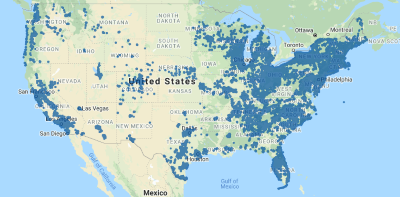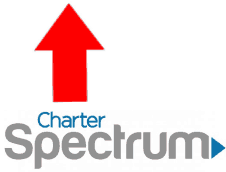
August 20, 2020
Ms. Marlene H. Dortch
Office of the Secretary
Federal Communications Commission
445 12th Street SW
Washington, DC 20554
Regarding Docket: WC 16-197
Dear Ms. Dortch,
We are writing to express concern about the FCC’s apparent rush to judgment over Charter’s petition to sunset two important conditions the company agreed to in return for approval of a highly profitable merger deal involving Time Warner Cable and Bright House Networks. The accelerated pace of this proceeding is very odd, considering Charter has claimed in the press it has no plans to implement data caps and cannot act on the Commission’s decision before the spring of 2021.[1]
This docket is full of comments from consumers that are overwhelmingly opposed to Charter being allowed to impose data caps. Despite assertions from some cable companies that data caps are “popular” with consumers, the comments in this docket speak for themselves. Few, if any consumers support data caps and they are not popular and never have been.[2] Consumers do not express support for data caps by choosing providers that impose them. In most cases, they have no other reasonable choice. Mediacom’s comments on data caps do not reflect consumer sentiment anymore than Charter’s comments did, and the fact is its 60 GB allowance tier is an anomaly in the broadband marketplace.[3] We also note Mediacom did not disclose what we suspect is an extremely low percentage of customers finding that plan adequate for their needs. Again, we point the Commission to comments in this docket filed by actual consumers to get an understanding of how much they dislike data caps.
Also appropriate for consideration are the candid conclusions reached by former Time Warner Cable executives admitting that consumers overwhelmingly rejected the company’s “budget” data allowance plans, and to such an extent the company discontinued them several years ago.
Speaking at the Deutsche Bank Media, Internet and Telecom Conference in Palm Beach, Fla., in March 2014, Time Warner Cable Inc. Chairman and CEO Rob Marcus said very few broadband subscribers opted for its internet plan that caps data use at 30 gigabytes per month. In fact, the number of subscribers taking the use-based service tier is running only “in the thousands” — a very tiny slice of the MSO’s roughly 11 million US broadband customers.[4]
Many of the groups that have supported Charter’s petition are also recipients of donations from the cable company and their views must be considered in that context. Many were specifically invited by Charter to participate in this proceeding. At least one, the Niagara Falls Boys and Girls Club, remarkably and publicly repudiated its own initial support for Charter’s petition after we publicly asked why the organization took a stand on an issue that seems far afield from its mission.
As a Buffalo TV newscast noted:
“After a quick whirlwind of events, the Niagara Falls Boys & Girls club went from supporting a measure after receiving a donation from Charter to then distancing themselves entirely.
But if this wasn’t enough of a Nancy Drew novel for you, we have this update:
Charter is apologizing to the Niagara Falls Boys & Girls Club.
[…] The reality of the situation is there’s nothing illegal here. What stands out is that the Niagara Falls Boys & Girls Club has only submitted one FCC comment, as far as WGRZ can determine. The comment came after they received a donation from Charter Communications, and the letter was in support of an initiative that Charter Communications wants regulators to approve.
This situation, and others that WGRZ has also discovered, raises serious questions about the position non-profits are put in after they receive a donation from a large company.”[5]
At the same time, consumers with no financial interest in Charter beyond being customers are continuing to share their views with the Commission to this day. They are overwhelmingly hostile to the idea of Charter being given an early sunset to the very modest deal conditions imposed by the FCC. We believe consumers should have the benefit of a much longer comment window to express their concerns. The current 14-day extension is wholly inadequate.
Additionally, with the presidential election less than 80 days away and the recent decision by the president to withdraw the nomination of Commissioner Michael O’Rielly to serve a second term, we feel this petition should be addressed by the Commission during the next Administration and after his replacement is confirmed and seated, which would still allow for a decision prior to the fifth anniversary of the merger order, the earliest the imposed deal conditions can sunset.
Because the FCC did not invest any time and energy to defend the related court challenge of other Charter deal conditions before the D.C. Circuit, it is clear the FCC has much higher priorities under consideration at the moment. Therefore, it should move to delay further consideration of this matter, accept additional input from interested parties, and assure a decision will be forthcoming early next year, before the fifth anniversary of the merger order. This would not harm Charter and would clearly demonstrate the Commission was not rushing this petition through, which could give the perception the FCC was unfairly biased towards Charter to the detriment of consumer interests.
As the COVID-19 pandemic continues to severely impact the United States, the last thing consumers should face is a higher bill for internet access, either with the imposition of data caps or charging interconnection fees that could force video services to increase pricing. Americans are relying on the internet to stay entertained, informed, work, learn, and shop from home, and manage health care needs through tele-health video conferencing. Charter has told the Commission its network has been more than capable of handling the increased traffic from these activities.
There is no urgency here and no evidence a delay until early 2021 would harm Charter’s interests in any way.
Yours very truly,
Phillip M. Dampier
Founder and President
[1] “Charter Seeks FCC OK to Impose Data Caps and Charge Fees to Video Services” https://arstechnica.com/tech-policy/2020/06/charter-seeks-fcc-ok-to-impose-data-caps-and-charge-fees-to-video-services/
[2] “Reply of Charter Communications” https://ecfsapi.fcc.gov/file/10806999321971/Charter%20Merger%20Conditions%20Sunset%20Petition%20Reply%20(8-6-20).pdf
[3] Mediacom ex-parte communication https://ecfsapi.fcc.gov/file/108172969830849/Mediacom%20August%2017%2C%202020%20ex%20parte.pdf
[4] “TWC Subs Say No to Data Caps” (3/2014) Light Reading: https://www.lightreading.com/services-apps/broadband-services/twc-subs-say-no-to-data-caps/d/d-id/708194
[5] “Charter Regrets Misunderstanding With Niagara Falls Boys and Girls Club.” (WGRZ-TV Buffalo) https://www.wgrz.com/article/news/local/charter-regrets-misunderstanding-with-niagara-falls-boys-girls-club/71-f50b6957-dd26-4560-bb0c-d6d5828c1cd1
 Cable internet customers connecting to Spectrum’s large national network of Wi-Fi hotspots may have to make some adjustments on their mobile devices to keep those connections working.
Cable internet customers connecting to Spectrum’s large national network of Wi-Fi hotspots may have to make some adjustments on their mobile devices to keep those connections working.In order to connect to the same networks outside of the Spectrum Internet® service area, you will need the Spectrum Internet WiFi profile installed on your compatible device(s).


 Subscribe
Subscribe Charter Spectrum is raising the price of its internet service by $5 a month starting in December, making most internet-only customers pay $74.99 a month for service starting at 100 Mbps.
Charter Spectrum is raising the price of its internet service by $5 a month starting in December, making most internet-only customers pay $74.99 a month for service starting at 100 Mbps. Facing no significant new competitive pressure, Charter Communications has put DOCSIS 4, capable of bringing dramatically faster internet service to Spectrum customers, on hold until 2022.
Facing no significant new competitive pressure, Charter Communications has put DOCSIS 4, capable of bringing dramatically faster internet service to Spectrum customers, on hold until 2022. Charter Spectrum has introduced a new budget-priced internet plan for households with students, offering a 50/5 Mbps internet connection for $29.99 a month.
Charter Spectrum has introduced a new budget-priced internet plan for households with students, offering a 50/5 Mbps internet connection for $29.99 a month.
